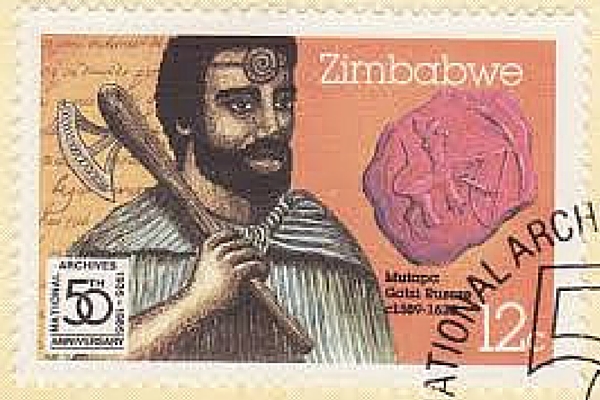The Mutapa State consolidated power and maintained its dominance from the 15th to the 20th century in what is now present day Zimbabwe. The ruling class of the Mutapa people had similar culture and customs as those of the Great Zimbabwe.
The Mutapa people produced and traded a variety of goods such as elephant tusks and gold and encouraged traders including the Swahili and Portuguese to come to their state. However, because the Mutapa wanted to control trade in their state they chose a sartanejo/ Captain of the Gates who would settle any trade disputes with the Portuguese. In addition, the Captain of the Gates would make sure the Portuguese would obey the laws and customs of the Mutapa, pay tribute and pay taxes on all goods brought into the state. When the Portuguese traders failed to adhere to the rules the Mutapa would close the mines, confiscate their property and stop all trade with them until they conformed.
For the most part, trade in the Mutapa state was peaceful and organized until the Portuguese became greedy. The Portuguese and the Mutapa traded beads, cloth, cattle, ivory, gold and so forth. In addition, the Portuguese had to pay tribute and taxes to the King. After Portuguese missionary, Goncalo Silveira was killed in 1561, the Portuguese used this as an excuse to launch attacks against the state.
In 1569, an army of a thousand led by Francisco Barreto sailed from Portugal to attack the Mutapa. However, they never arrived because of hunger and disease. After Barreto died, Vasco Homem took over the army and invaded the gold producing state of Manyika which was located between Mutapa and Sofala. After Homem and his army took over Manyika they tried to control the mines and force the locals to work as slaves in the mines. However, Homem and his army failed because they did not understand the culture. The Manyika were primarily farmers would farm for most of the year and only mine during the non productive farming season because the gold was not enough to sustain full time work. Homem left Manyika in 1575 and the Portuguese did not return for another 200 years.





3 responses to “The Mutapa State & Portuguese Traders in the 16th Century”
So the Portuguese thought they knew better than the locals? hmmmm
the Portuguese got greedy as they wanted to be intotal control of the land so as to acquire more gold
not dat helpful